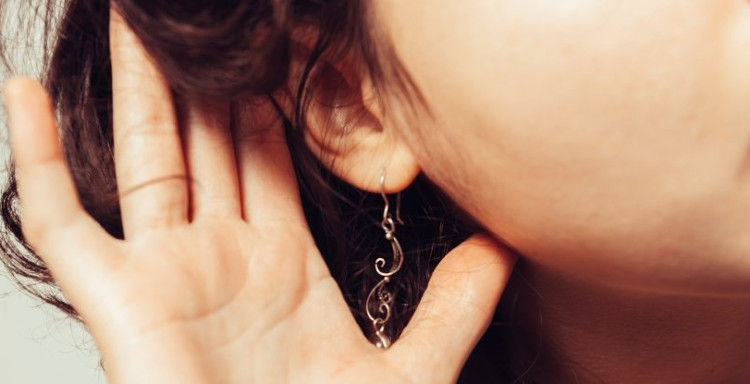This is why the right ear hears better than the left ear
If you really want to hear something correctly, try tilting your head to direct the sound straight into it. Why is that?
According to a new study, when the brain is stressed because at the same time receiving a large amount of information, people will depend on the right ear to listen , because they handle and retain sound information better left ear.
This is called the ' right ear ' advantage and in the past there has been some research on it. The first study appeared in 1967, showing the connection of the right ear to the left hemisphere in people with neurological problems. This process causes the right ear to dominate the language processing.
In 1973, researchers published an article and they said that the right ear advantage exists in children between the ages of 5 and 13, and it only began to appear when the children were 5 years old. year old. In addition, a 1974 study also showed that when people have difficulty hearing sounds, the right ear advantage will increase significantly.
Listening skills tests are used to diagnose disorders of hearing treatment, or to investigate disorders that can hallucinate patients like schizophrenia.
In tests, participants heard two different lines of audio information by earpiece, each ear receiving a type of information. Common audio streams are conversation, or a voice that is reading a sentence or a series of numbers. Volunteers were asked to concentrate on hearing only one ear (separate) or both ears (integrated), then repeat what was heard.

People hear sounds better with their right ears.(Photo: Shutterstock).
In the new study, the authors want to identify one thing: whether the right ear advantage works with the surrounding noise as well as the interruption because of the sound that people often encounter in everyday life. day?
The main author of the study, Danielle Sacchinelli, of the University of Auburn in Alabama, said: "Knowing a lot about how people listen to sounds from their surroundings and efforts to listen to them - is really very They will help science create better hearing and diagnostic tools. "
Although the right ear advantage still exists when people reach adulthood, the authors want to see how this advantage has been maintained. They want to know the development process of right-ear advantage, because the way of listening to the sounds of adults and children is not the same. We hear sounds slightly different in each ear, and they are combined in the auditory system. However, children's hearing systems are struggling with this complicated task, so they rely on the right ear to hear more.
The adult hearing system has the ability to process and combine sound signals better, so their right ear advantage is reduced, the team said. Researcher Aurora Weaver said: "As we get older, we have the ability to control attention in the process of processing information more efficiently. This is the result of each person's maturity and experience." .
The researchers invited 41 adults between the ages of 19 and 28 to participate in the experiment. They were asked to perform a number of separate and integrated listening tests. With each subsequent check, the number of items in the list read through the headset increases by one.
Later, the researchers examined and found no difference in the participants' right and left ear information. This result is applied when the number of items heard is below the memory capacity of humans.
However, when the number of items is heard beyond memory tolerance, volunteers are more likely to remember what is heard in the right ear than the left ear. On average, this difference is 8%, but in some people the difference is up to 40%.
Weaver researcher said: "Normal studies show that the right ear advantage starts to decline when people enter the age of 13, but our results show that this is related to the nature and quantity. Of course, cognitive skills can be impaired by aging, illness or injury, so we need to better understand the impact of cognitive needs on listening. "
The study was presented at the 174th meeting of the American Sound Association.
- The mystery of the tendency is 'off the left' that people don't recognize
- Secrets of left-handed people
- Scientific explanation for the right-to-left confusion
- Left-handed and 12 truths
- The advantages of left-handed people that you don't recognize
- Left-handed people have more disadvantages in their work
- Disadvantage of left-handed people
- Why is there water running on the right, with water on the left?
- The fun of left-handed people
- Left-handed and longevity
- Why do you and many other countries in the world drive left?
- For beautiful photos, take a tilting shot on the left side of your face
 Green tea cleans teeth better than mouthwash?
Green tea cleans teeth better than mouthwash? Death kiss: This is why you should not let anyone kiss your baby's lips
Death kiss: This is why you should not let anyone kiss your baby's lips What is salmonellosis?
What is salmonellosis? Caution should be exercised when using aloe vera through eating and drinking
Caution should be exercised when using aloe vera through eating and drinking